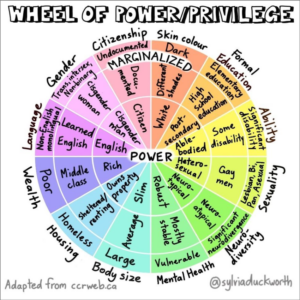Throughout my time attending UNBC, my life (both personal and professional) has had a number of firsts for me. Personally, I faced a new challenge unlike any I’ve ever experienced, when I had to relocate my family (including my three children) in the wake of a significant housefire that made my family home unlivable for an extended period of time. During this adversity, I developed a new appreciation of the uncertainty that many of my students face on a daily basis, whether that be in the form of housing insecurity, food scarcity, or mental health challenges. While my experience was only a temporary snapshot of the hardships that many endure, it emphatically strengthened my resolve and desire to be a pillar of consistency for those that I hope to effectively guide and instruct on a daily basis. Professionally, I made the decision to leave the conventional classroom and dedicate my efforts towards being a support teacher, and case manager, for predominantly neurodiverse children in a socio-economically disadvantaged, inner-city elementary school.
Directly related to my underlying goals of wanting to “be more,” and “do more,” I found a positionality that lends very well to a guiding question for myself:
“How can educators, leaders, and role models maximize their positive impact in the daily lives of the students that they work with?”
While I understand that at first glance this question may seem simple; after all, doesn’t every educator want to have a significant impact and influence in the lives of their students? I argue both yes, and no, but not necessarily for the reasons that people may expect. Admittedly, different versions of this question have resonated in my mind for the better part of fifteen years. How I’d go answering it however, has seemingly taken on even more iterations, and my research and learning experiences have attempted to address all three roles within the question.
As an Educator:
I’ve never considered myself to be a natural educator, and even today, after ten years into my teaching career, I’m sometimes uncomfortable with having the label attached to me. As such, this is something that has come up frequently in my own journey; not only as I become more receptive to the title, but how I can use it to enhance the lives of those that I work with.
As a Leader:
One concept that has consistently frustrated me has been the seemingly direct interrelationship between leadership and school administration, regardless of the quality of leadership possessed by educators in other teaching roles. As such, it is my belief and has been an emphasis of my work, that while symbiotic, these two components do not have to be directly intertwined.
As a Role Model:
Finally, the concept of role modelling in primary education, particularly as a male in a non-traditional role, has remained, and will remain extremely important in my practice. As my own positionality has been located predominantly in the center of the wheel of privilege, I have acknowledged that I can utilize this to help students located towards the peripheries who have not enjoyed the same benefits that educators like me often take for granted.
located predominantly in the center of the wheel of privilege, I have acknowledged that I can utilize this to help students located towards the peripheries who have not enjoyed the same benefits that educators like me often take for granted.
In this portfolio, I will highlight educator theories pertaining to student motivation and role modelling, and how they can be effectively utilized in promoting school environments based on communities of care. In order to efficiently demonstrate this, I’ve included a number of theoretical concepts, research based on the underrepresentation of male teachers in primary education, as well as practical tools used to assist students with diverse needs, and with wide-ranging life experiences.
